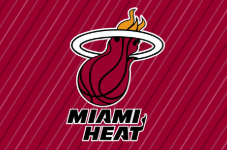As the days of the 2023/2024 soccer season dwindle, the biggest game of the year will be played—June 1st marks the UEFA Champions League final between 14-time champions Real Madrid and the underdogs Borussia Dortmund. Real Madrid had a tough knockout stage, defeating reigning champions Manchester City and Bayern Munich. Dortmund had a relatively easier time getting to the final, but in almost every game, they were seen as underdogs. Here, we analyze the strengths and weaknesses of each team and how each can win the final.
Dortmund is an interesting case. Failing domestically but absolutely excelling in the Champions League. Their strengths include a strong defense and a deadly counterattack. However, their weakness is visible when they have a bad game; they can perform poorly. Therefore, they need to ensure they are on point come June 1st. Real Madrid, on the other hand, is a 14-time champion for a reason. They have numerous strengths that outweigh their weaknesses by a significant margin. From their magical comebacks, the quality of their players, to their ability to switch from all-out attack to a solid defense, Madrid boasts an array of strengths. As of now, there seem to be no significant weaknesses in their gameplay.
If Dortmund intends to defeat Madrid, they must deliver their best performance. On their journey to the final, Dortmund topped their group, which was arguably the toughest group with PSG, AC Milan, and Newcastle. They also breezed past PSV, faced difficulties against Atletico but managed a miraculous comeback, and outplayed PSG with a beautiful counterattacking display. However, Real Madrid is on another level compared to those previous opponents. Dortmund’s game plan should resemble what they executed against PSG. They must sit back, rely on the experience of Mats Hummels to guide the defense, and then swiftly counterattack using their fast frontline comprising Sancho, Brandt, Fullkrug, and Adeyemi. If Dortmund executes this strategy effectively, they stand a chance at victory.
Real Madrid’s dominance in these games is evident by the fact that they haven’t lost a UCL final since 1981, a streak of 31 years. They enter the final as heavy favorites, boasting a solid defense led by Rudiger, a stellar midfield including Kroos, Camavinga, Valverde, Modric, and Bellingham, and a potent attacking lineup spearheaded by Vinicius and Rodrygo. Their performances against Manchester City, when they defended resolutely to secure a penalty shootout win, and against Bayern Munich, when they scored twice in two minutes for a comeback victory, highlight their prowess. Madrid is a club known for miracles in this competition, and a loss would come as a significant shock. Their key to victory lies in scoring early to dampen Dortmund’s morale.
The upcoming UCL final promises to be intriguing. It deviates from the usual final featuring two powerhouse teams and instead showcases a battle between an underdog and a dominant force. A Dortmund win would be historic, etching a remarkable chapter in their history. For Madrid, another UCL trophy would further embellish their illustrious record to 15 titles. While many expect Madrid to triumph, Dortmund has the opportunity to put up a spirited fight, potentially crafting an underdog tale. In football, anything can happen on any given day. The distinction in these finals often lies not in talent or player quality but in the team’s determination and willingness to go the extra mile.












